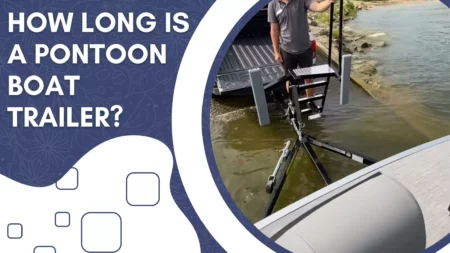Are you in the market for a new boat but need help deciding which type to choose? Many people are torn between tritoons and pontoons, two of the most popular boat types on the market.
While both offer great experiences on the water, there are a few key differences between them that you should consider before making your decision.
Tritons are larger, more powerful, and more stable than traditional pontoons. They also have more space for passengers and cargo, allowing you to bring the whole family along on your next water adventure.
On the other hand, pontoons are often cheaper, lighter, and more maneuverable than tritoons, making them an excellent choice for people who want a smaller, more affordable boat. So, which one should you choose?
Learn about the advantages and disadvantages of pontoon and Tritoon for each type of boat to make an informed decision and get the right boat.
Definition of tritoons and pontoons
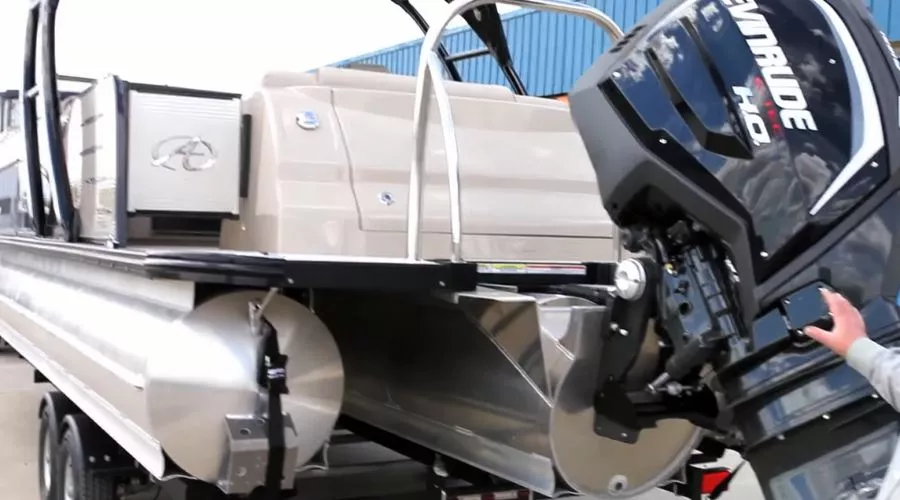
Tritoons are a type of powerboat with three separate hulls instead of the traditional pontoons found on most fishing and recreational boats.
This allows them to offer more stability and ride higher in the water, making them great for people who plan to spend a lot of time on the water in rough conditions.
On the other hand, pontoons are the large, enclosed hulls found on most fishing and recreational boats.
While pontoons boats are generally less stable and don’t handle rough water and tritoons, they’re also much more affordable and easier to maneuver.
If you are finding for a family-friendly boat with plenty of space and a stable ride, tritoons are a great option.
But if you’re finding for something small and elegant that you can quickly drive around, pontoons may be a better choice.
Benefits of tritoons
Benefits of pontoons
Tritoon Boat Vs Pontoon

Tritoons are often more expensive than pontoons due to their enhanced durability and larger size.
However, you can find many pontoon boats in the $15,000-$35,000 price range, making them affordable for people on a budget. This makes tritoon boats around $40,000 more expensive than pontoon boats.
While this may seem like a lot, it’s important to remember that pontoon boats have a much shorter lifespan than tritoon boats due to their more lightweight construction.
This means you’ll have to replace your pontoon boat much more often, which can add up if you plan to use the boat a lot.
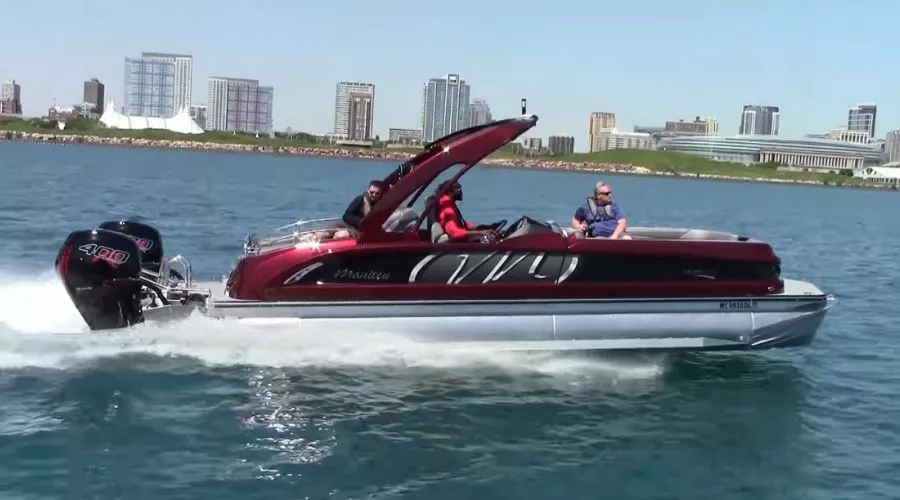
Tritoons are generally faster than pontoons due to their larger size. This makes them the ideal choice for people who want to travel long distances quickly.
However, most pontoon boats can also travel at high speeds.
The pontoon boat may be a good choice if you want a fast ship, but one that remains stable and maneuverable.
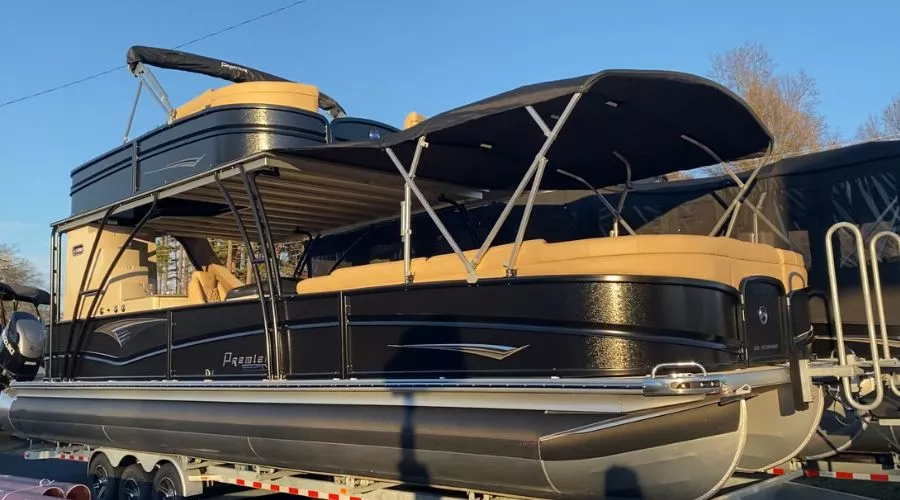
Tritoons offer more space than pontoons, making them a great option for larger groups and families.
This also makes them a great option if you plan to travel long distances in your boat, as more people can comfortably fit on board.
If you’re finding for a boat that can hold a larger group, tritoons are a great option.
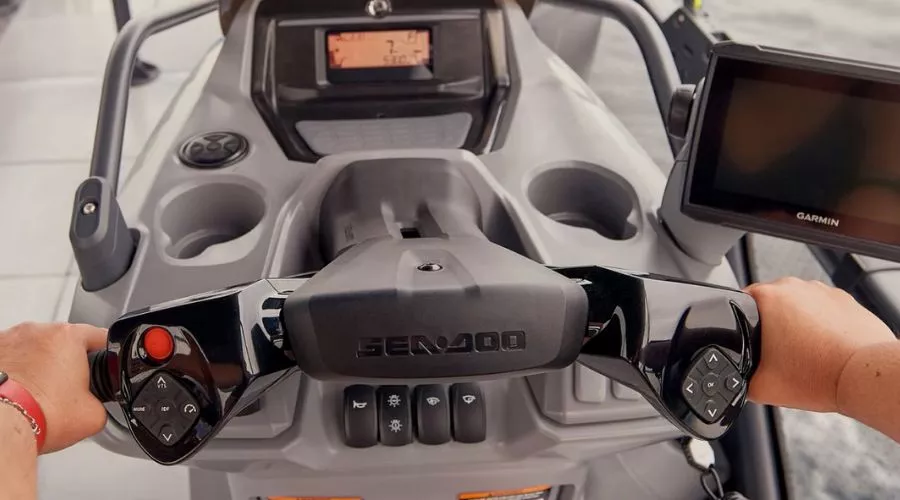
Tritoons are better for open water, while pontoons are better for smaller bodies of water.
If you want to spend a lot of time on lakes and rivers, a pontoon boat may be a great option, as they are more maneuverable and handle smaller bodies of water better than tritoons.
However, if you plan to spend a lot of time on the ocean, a triton boat may be a better option for you, as they are better for open water.
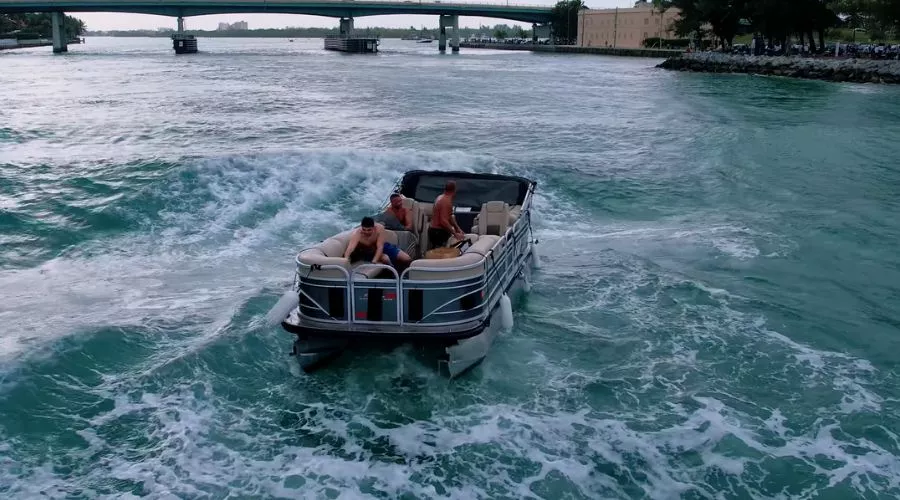
Since tritoon boats are more significant, they are better for rough water than pontoon boats.
This makes them an excellent option for people who plan to travel more often on rougher bodies of water, like the ocean.
Pontoon boats are better for smaller bodies of water that experience less turbulence.

Tritoon boats require less maintenance than pontoon boats due to their larger size and construction.
This makes them a great option for people with little time to maintain their boats.
Pontoon boats are generally smaller and lighter than tritoon boats, which makes them easier to store and keeps maintenance low.
However, it’s important to remember that pontoon boats must be inspected and maintained by law, while tritoon ships do not.
How to choose between tritoons and pontoons
Now that you know the critical differences between tritoon and pontoon boats, it’s time to decide which one is right for you.
Before you make your decision, make sure you consider the following factors so you can find the perfect boat for your needs.
- How often you plan to use your boat – If you plan to use your boat often, a triton boat may be a better option for you, as they are designed to be more durable and last longer.
- The size of your boat – If you have a more prominent family, consider a triton boat, as they offer more space and seating than pontoon boats.
- Where you plan to use your boat – If you spend most of your time on lakes and rivers, a pontoon boat may be a better option.
A triton boat may be a better choice if you plan to travel often on large bodies of open water.
Conclusion
Tritoons are great for larger boats and those who plan to spend a lot of time on the open water.
However, they may be overkill for smaller boats and people who spend most of their time on lakes and rivers.
On the other hand, pontoon boats are better for smaller ships and people who want a lighter, more maneuverable boat that is also easy to store.
For people who want a boat for leisure and fishing, tritoons and pontoons are both excellent choices.
The key is to consider your needs and choose the boat type that best fits your lifestyle and expectations.
FAQS
Is a Tritoon better than a pontoon?
This offers more water stability and makes the boat more maneuverable. The extra tube also allows for larger engines, giving you more power when needed. On the other hand, the other tube does add some excess weight, making the tritoon slightly less fuel efficient than a pontoon. Regarding seating and storage, tritoons tend to have more room than pontoons. This makes them ideal for larger groups or people who want to spend more time on the water. Tritoons also tend to be better suited for rougher waters since they are more stable than pontoons.
Can a Tritoon boat flip?
Ensure you’re keeping the boat manageable with passengers and gear.
Be aware of your local weather conditions and consider any strong winds before you set out.
If you’re inexperienced driving a tritoon, consider taking a boating safety course to learn how to navigate rougher waters.
Is Tritoons good in rough water?
However, the design of the tritoon you choose will affect how well it handles rough water. A longer boat with more surface area will provide better stability and improved handling. Also, if you opt for a larger tritoon, it can handle rougher waters due to its increased buoyancy and size.
When shopping for a tritoon, make sure to look for one that is designed to handle rougher waters. Many tritoons come with more oversized pontoons, higher gunnels, and extra lifting strakes that help them remain stable in choppy conditions.
Is a Tritoon a pontoon?
Adding the third pontoon increases the boat’s stability and allows it to carry more weight than a standard pontoon. It also helps the boat to plane better and reach higher speeds, giving it more maneuverability than a traditional pontoon. This makes tritoons ideal for watersports, such as skiing and wakeboarding.

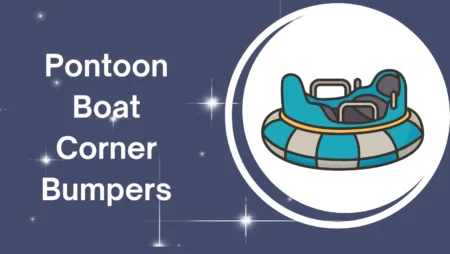
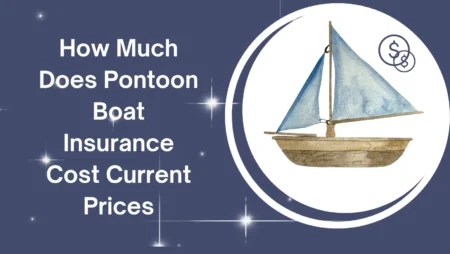
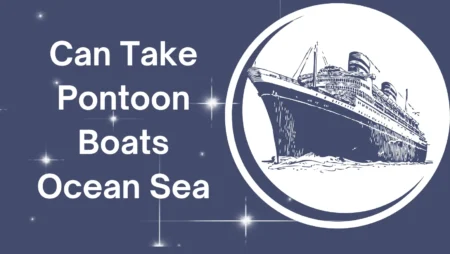
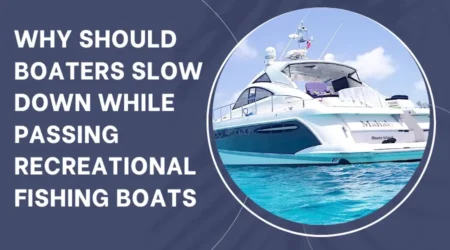

![What Is The Best Way To Avoid Overloading Your Boat?-[Guide 2023]]](https://theboatingbuds.com/wp-content/uploads/2022/03/Best-way-to-overload-boat.webp)
